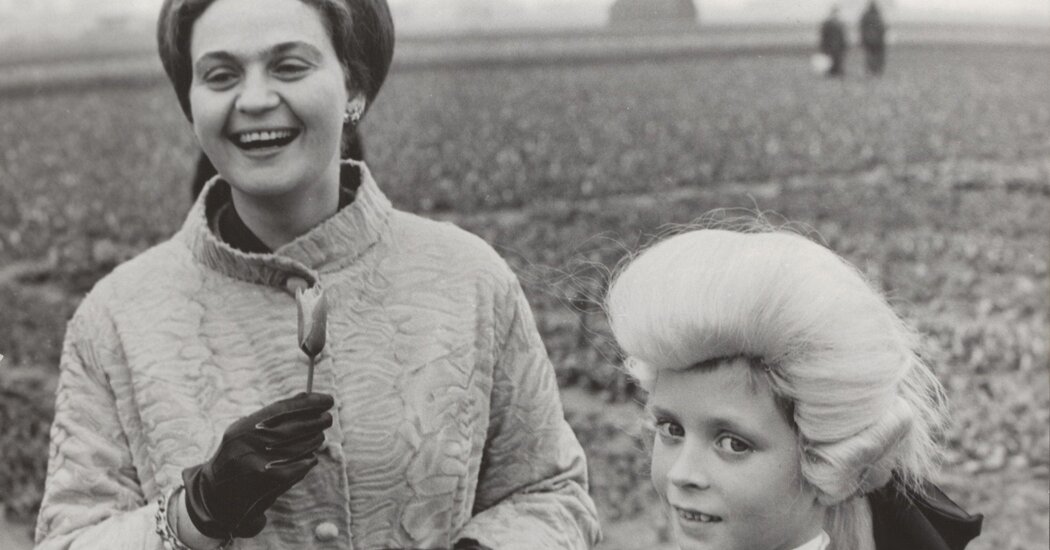
Ingrid Haebler, Pianist Known for Her Mastery of Mozart, Is Dead
05/27/2023Ingrid Haebler, a pianist who drew particular acclaim for her performances and recordings of the works of Mozart, impressing critics while still in her 20s with elegant interpretations that set her apart from other musicians of her day, died on May 14. She was believed to be 96.
Decca Classics, which last year released “Ingrid Haebler: The Philips Legacy,” a boxed set of dozens of recordings she made for the Philips label, posted news of her death on Facebook. The Austrian newspaper The Salzburger Nachrichten reported her death, attributing the information to her circle of friends, but did not say where she died.
Ms. Haebler was born in Vienna, probably on June 20, 1926 (some news reports said 1929). Her father was a baron. Her mother played piano and began teaching Ingrid when she was a young child; she gave her first public performance at 11. They lived in Poland when Ingrid was young but settled in Austria in the late 1930s.
As a teenager, she wrote poetry and dabbled in composing. But at 19 she decided to focus fully on piano — “I had to kill a lot of my interests,” she told The Sydney Morning Herald of Australia in 1964. She trained at the Salzburg Mozarteum in Austria and in the early 1950s began earning accolades at European piano competitions. By 1954, recordings she made for Vox with the Pro Musica Symphony of Vienna were drawing notice in the United States.
“A delicate — but not finicky, to make the distinction — articulation of Mozart that is uncommon today is the way Ingrid Haebler plays the A major (K. 414) and B-flat major (K. 595) Piano Concertos,” Cyrus Durgin, a music critic for The Boston Globe, wrote in August 1954, reviewing one of those records. “You will always find people (including musicians) defending or attacking this manner, but it does meet Mozart’s requirement that his keyboard music ‘flow like oil and water.’”
That same year she performed as a soloist in England with the Royal Philharmonic Orchestra. Mozart was her calling card, but she proved an adept interpreter of other composers as well, as she did in 1956 when she played a program of Mozart, Haydn and Schubert at Wigmore Hall in London. She “captured and held spellbound her audience,” The Daily Telegraph of Britain wrote.
By 1958, The Bristol Evening Post reported, her stature was such that, at the Bath Festival, she felt free to reject the Steinway that was provided to her during the practice session and sent the organizers scrambling to find another piano.
At that festival, she further showed that there was more to her than Mozart. She played Beethoven’s Piano Concerto No. 1 and impressed The Daily Telegraph of Britain. “Without ever invoking a spurious foresight of the Beethoven that was to come,” the newspaper wrote, “she placed the work in the 18th century, yet across the gulf that already separated him from Mozart.”
In October 1959 she made her American debut in Minneapolis with the Minneapolis Symphony, playing the Mozart Piano Concerto in B-flat.
“The acclaim of the audience brought the pianist back to the stage five times,” Ross Parmenter wrote in a review in The New York Times, “and the members of the orchestra joined in the applause.”
Ms. Haebler, who was a baroness but did not use the title, was still impressing audiences with her Mozart interpretations in 1976, when, at Hunter College, she played her first New York recital, augmenting her program with works by Schubert and Debussy but shining as usual on the Mozart selections.
“This was cloudless, untroubled Mozart,” Donal Henahan wrote in a review in The Times, “in line with the last century’s view of him as a miraculously blessed child.”
Ms. Haebler continued to tour until early in this century. On her numerous recordings, many of them for Philips, she covered a range of composers, but again it was often the Mozart recordings that stood out. Reviewing her recording of Mozart sonatas in 1990 for The Kingston Whig-Standard of Ontario, the critic Richard Perry zeroed in on what made her refreshingly different.
“In a concert world rife with pianists of dazzling technique who seemed forced by competition and cavernous concert halls to demonstrate their mettle at every turn,” he wrote, “the poise and simplicity of Ms. Haebler’s Mozart is a rare treat.”
Information on Ms. Haebler’s survivors was not immediately available.
Christopher F. Schuetze contributed reporting.
Neil Genzlinger is a writer for the Obituaries desk. Previously he was a television, film and theater critic. @genznyt • Facebook
Source: Read Full Article

